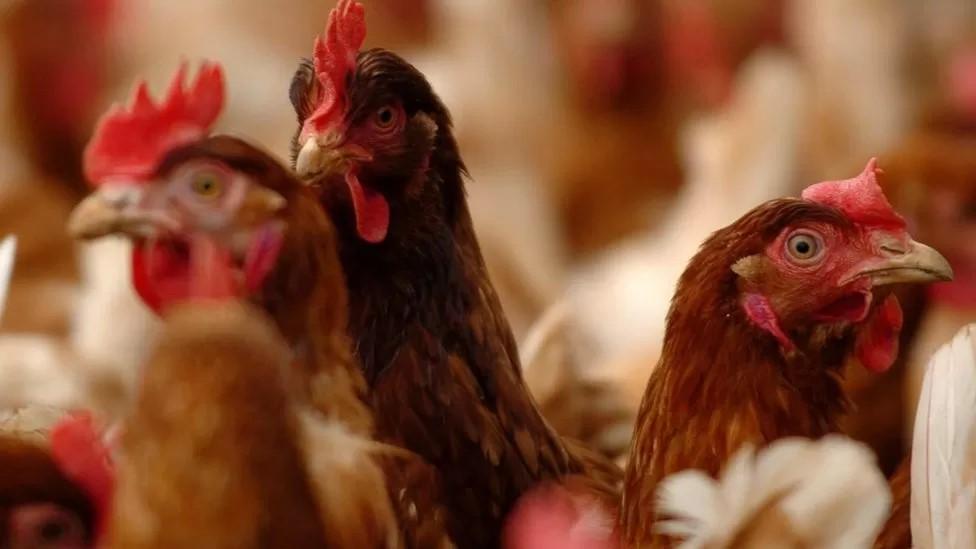Bird flu: Rare birds spared from cull in Essex
- Published
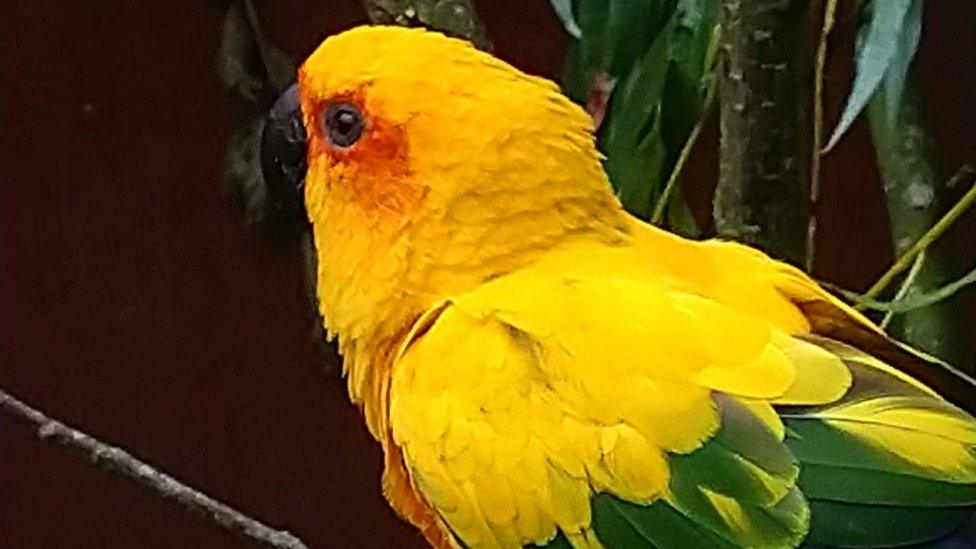
Claire and Jay's sun conure parakeet was one of 43 birds that returned negative tests
The owners of a private collection of rare birds have breathed "a sigh of relief" after further tests for avian flu came back negative.
Government officials had already culled 206 birds from the flock in Maldon, Essex, because of an unspecified number of positive tests.
The remaining 43 ducks, parrots and parakeets, however, will be spared.
The UK has witnessed the largest outbreak of highly pathogenic avian influenza (HPAI) on record.
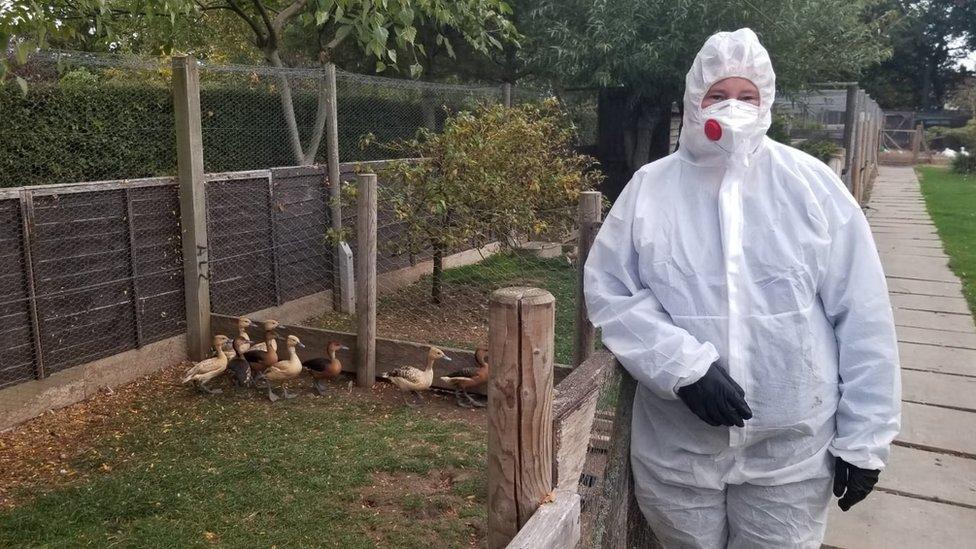
Claire said private bird collectors should be treated differently to commercial premises
"We're breathing a sigh of relief, in that, we haven't got that black cloud hanging over us," said co-owner Jay, who wanted to keep his surname private.
"But we are also still very saddened that the Department for Environment, Food and Rural Affairs (Defra) failed, in our personal opinion, not to test more of our birds and decided to cull 206 of them."
Jay's partner Claire has had a private collection in her family for 80 years. It has included canaries, red-breasted geese and tragopan pheasants.
The Animal and Plant Health Agency (APHA), part of Defra, confirmed positive results in the flock on 9 October and culled the birds a week later.
APHA said the remaining birds were subjected to separate tests because they were all rare breeds.
Entire flocks are culled as a precaution and owners are often entitled to compensation.
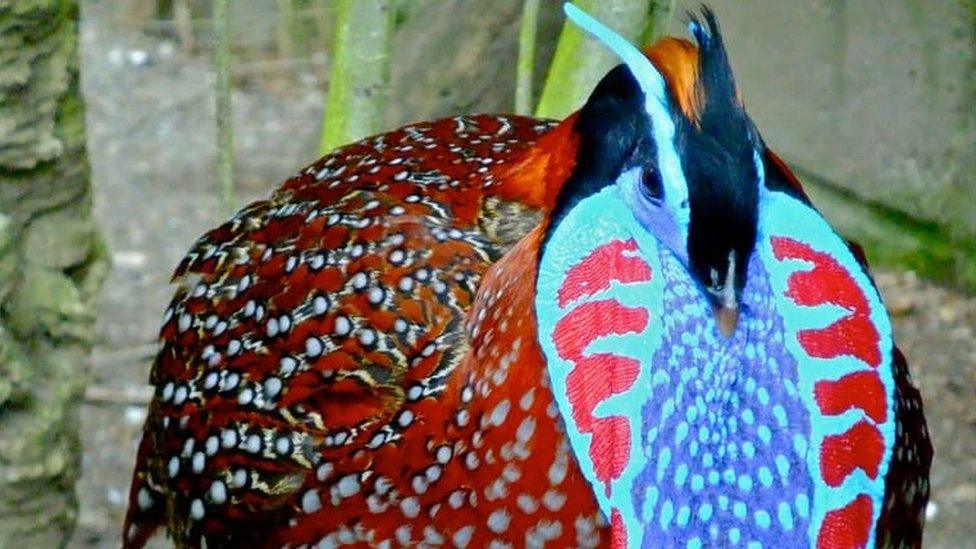
Claire's tragopan pheasant was one of 206 birds that were culled
Claire and Jay, who cannot introduce new birds to their flock for another 12 months, have criticised Defra for not treating private collections differently to commercial premises.
Norfolk, Suffolk and parts of Essex have been placed in an Avian Influenza Prevention Zone, meaning birds must be kept in mandatory housing.
An APHA spokesperson said: "All bird keepers have a legal responsibility to implement stringent biosecurity measures to keep their own birds safe and limit further spread."

Find BBC News: East of England on Facebook, external, Instagram, external and Twitter, external. If you have a story suggestion email eastofenglandnews@bbc.co.uk, external
Related topics
- Published24 October 2022
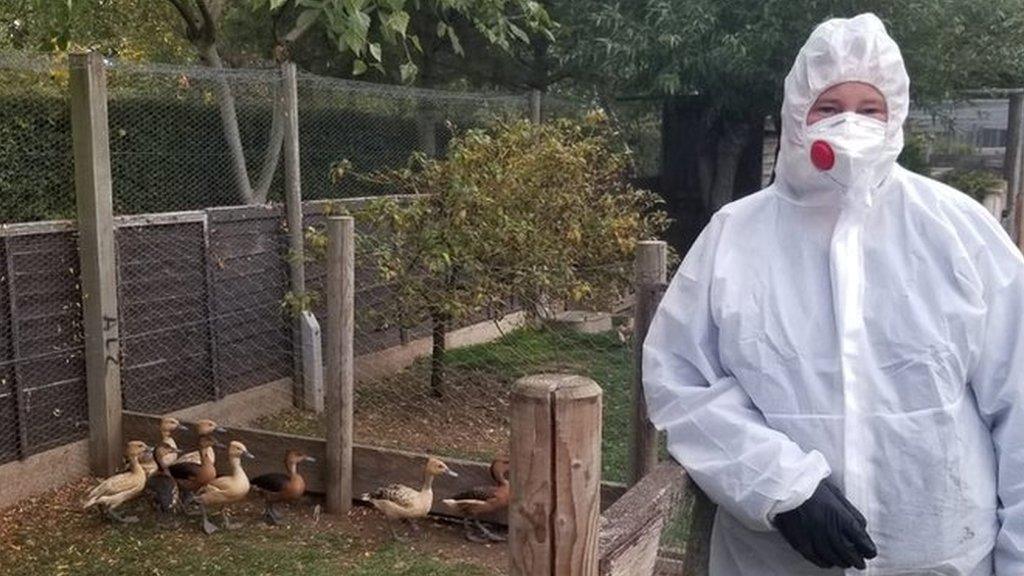
- Published11 October 2022
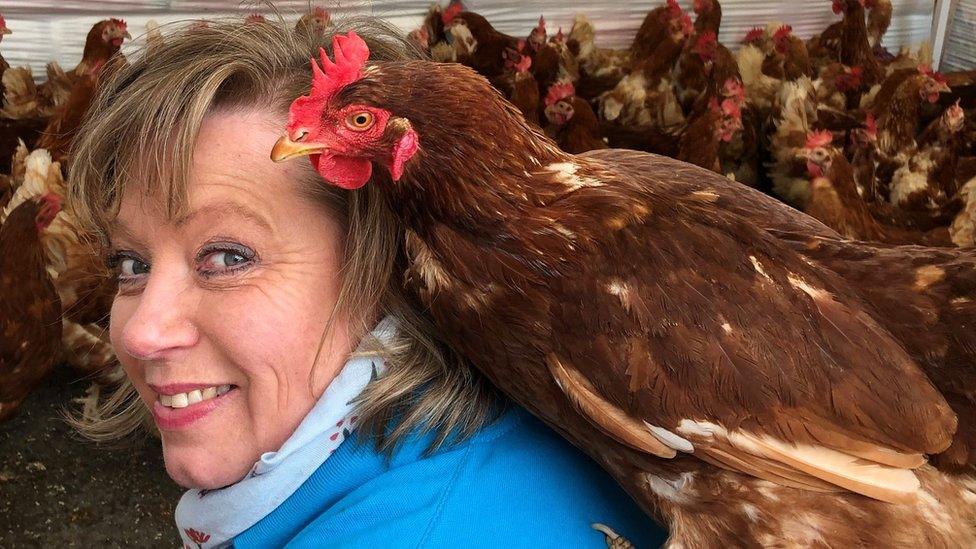
- Published3 October 2022
